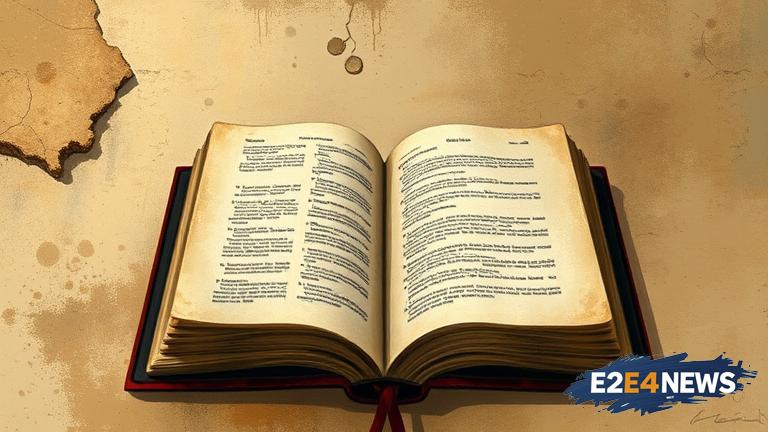The question of whether our Bibles are in the wrong order is a complex and multifaceted one, with roots in historical, theological, and literary considerations. The traditional ordering of the Bible, with the Old Testament preceding the New Testament, has been the standard for centuries. However, some scholars argue that this sequence may not be the most accurate or meaningful, and that a different ordering could provide a more nuanced understanding of the biblical narrative. One of the primary concerns is that the current ordering can create a sense of disconnection between the two testaments, with the Old Testament often being seen as primarily historical and the New Testament as primarily theological. This dichotomy can lead to a lack of appreciation for the ways in which the two testaments inform and intersect with each other. Furthermore, the traditional ordering can also create a sense of prioritization, with the New Testament being seen as more important or relevant than the Old Testament. However, this prioritization can be problematic, as it can lead to a neglect of the rich theological and literary traditions of the Old Testament. Some scholars argue that a more integrated approach to the biblical canon, one that takes into account the historical and literary contexts of the various books, could provide a more comprehensive understanding of the biblical narrative. This could involve rearranging the order of the books, or providing additional contextual information to help readers navigate the complexities of the biblical text. Another approach could be to emphasize the connections and themes that run throughout the entire biblical canon, rather than focusing on the distinctions between the Old and New Testaments. By taking a more holistic approach to the Bible, readers may be able to gain a deeper appreciation for the ways in which the various books and themes intersect and inform each other. Additionally, this approach could also help to mitigate the problem of biblical illiteracy, which is a growing concern in many parts of the world. Biblical illiteracy can lead to a lack of understanding and appreciation for the biblical narrative, and can also contribute to a sense of disconnection from the theological and literary traditions of the past. By providing a more integrated and contextualized understanding of the Bible, scholars and readers may be able to work towards a more nuanced and comprehensive understanding of the biblical canon. Ultimately, the question of whether our Bibles are in the wrong order is a complex and multifaceted one, and there is no easy answer. However, by engaging with the historical, theological, and literary considerations that underlie the biblical canon, scholars and readers may be able to gain a deeper appreciation for the richness and complexity of the biblical narrative. The traditional ordering of the Bible has been the subject of much debate and discussion, with some arguing that it is based on a flawed understanding of the historical and literary contexts of the various books. Others argue that the current ordering is based on a theological or ideological agenda, rather than a purely historical or literary one. Regardless of the motivations behind the traditional ordering, it is clear that a more nuanced and comprehensive understanding of the biblical canon is needed, one that takes into account the complexities and richness of the biblical narrative. By engaging with the historical, theological, and literary considerations that underlie the biblical canon, scholars and readers may be able to work towards a more integrated and contextualized understanding of the Bible, one that emphasizes the connections and themes that run throughout the entire biblical narrative.
